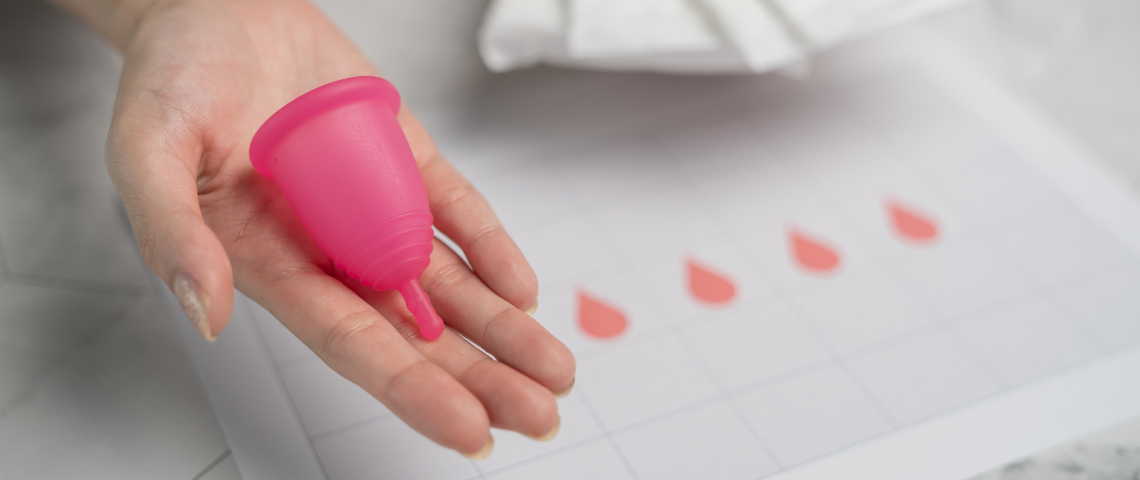Q&A with Stephanie Villers, A Ph.D. Management Student Breaking Barriers and Promoting Healthy Sustainable Alternatives

Stephanie Villers is a mature student in the Ph.D. Management program whose research seeks to explore how marketing sustainable goods and services can promote education, challenge prevailing misinformation and societal stigmas, and address gender inequalities regarding accessibility in stigmatized markets. She recently received funding from the Institute of Sustainable Commerce at Guelph (ISCG) for a collaborative project where she will be proposing changes to the Grade 5 "healthy bodies" curriculum to incorporate educational marketing materials highlighting the benefits of reusable menstrual products, which are more sustainable and have a wide array of health benefits.
As a mother of two girls, Stephanie's project is especially important and critical with the Ontario government's recent installation of sanitary napkins and tampon dispensers in schools, which constrain choices for young girls. Through her research, Stephanie hopes to open a dialogue around educating society on healthier options for people and the planet and reduce the stigma regarding menstruation and menstrual products. She answers more about her experiences and research below.
How have your experiences within the Ph.D. Management program impacted your professional and personal development?
I am a mature student so, my professional career preceded my academic one. In terms of training to become a professor, I would say that one of the biggest learning curves for my professional and personal development has been learning how to publish research.
What are some of your research interests, and what are some projects that you are currently involved with?
My research aims to understand how marketing can be used to promote sustainable goods and services within stigmatized markets. One of the projects that I’m most excited about is my collaboration with a school board to update the Grade 5 ‘healthy bodies’ curriculum to include educational marketing materials outlining the benefits of reusable menstrual products. It’s a timely topic because the Ontario government just installed sanitary napkins and tampon dispensers in schools thereby constraining choice. Also, with the pandemic, public health has scaled back its educational role in schools.
As a mom with two girls, menstrual health is important to me. Most parents and caregivers are unaware of the harmful impacts of reusable menstrual products – not just on the environment (10-15k SUP per menstruator enter landfills) but physical (e.g., almost half of all cases of TSS occur in young menstruators [Litt 1983]) and mental health (e.g., feelings of shame and embarrassment [Simes and Berg 2001; Weir 2015]). Period underwear has several benefits, like reducing the risk of RTI, UTIs and bacterial vaginosis (FMI 2021) and being less expensive in the long run. Perhaps one of the most profound benefits is that they help to normalize menses. Menstruators just put on a pair in the morning, and like on any other school day, they don’t have to leave the classroom multiple times to change them. This becomes a gender equity issue vis-à-vis access to education.
Unfortunately, most parents and guardians don’t have adequate information about all the alternatives. This might help to explain why brand switching is exceptionally low for this product category. We’re so afraid of leaks that once we “trust” a brand we stick with it. This calls into question whose responsibility it is to educate young menstruators and more specifically what role schools play in imparting information.
I was fortunate to receive a small grant from the Institute for Sustainable Commerce at Guelph to fund this project. Part of that money was used to incentivize teachers to participate in my study by offering a draw in which one teacher would receive free period underwear for all the menstruators in their class. The teacher who won sent home the products and information brochures to her students. She sent me a picture and it was quite moving because it’s not often you get to see the impact of your research.
What impact do you expect your recent research projects to have?
The school board has been very supportive of the period project. Hopefully, working together, we’ll be able to secure SSHRC funding to roll it out to other classes as this would allow my research to have a more significant impact on our community.
Where do you envision your research 10 years from now?
I’m hoping that there will be a cultural shift in society to destigmatize menstruation and open a dialogue about healthier options for people and the planet. I’d love for sustainable menstrual products to become so mainstream that this research stream becomes obsolete. So, 10 years from now, I genuinely hope I’ve moved on to tackling another sustainability issue.
Throughout your academic journey, what has been the most significant learning experience?
One of the most profound experiences I’ve had as a graduate student is the opportunity to attend conferences. Not only have I had the chance to present my own research but also to attend presentations in my field of study. I’m thankful that the Dean’s office offers graduate students funding to do so, as these opportunities for knowledge sharing have helped me to become a better scholar.